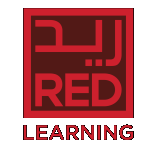In an increasingly interconnected world, language fluency is a powerful asset for HR professionals navigating global workforce dynamics. This chapter explores how language proficiency, combined with psychological insights, enhances cross-cultural communication, talent acquisition, and organizational effectiveness. From understanding cultural nuances to building rapport with international teams, HR leaders will discover strategies for leveraging language fluency to drive success in a diverse global landscape.
Key topics covered include:
- Cultural intelligence: Exploring the concept of cultural intelligence (CQ) and its importance for effective global HR management. HR professionals will learn how to develop CQ skills to navigate diverse cultural contexts, build trust, and foster collaboration.
- Language diversity: Examining the role of language diversity in global workplaces and its impact on communication and teamwork. HR leaders will gain insights into the challenges and opportunities of multilingual environments and strategies for promoting linguistic inclusivity.
- Intercultural communication: Understanding the principles of intercultural communication and their application in HR practices. HR professionals will learn how to adapt their communication styles, bridge cultural differences, and prevent misunderstandings in cross-cultural interactions.
- Talent acquisition and retention: Exploring how language fluency can enhance talent acquisition efforts, particularly in global recruitment and relocation processes. HR leaders will discover strategies for assessing language proficiency, supporting language learning initiatives, and creating inclusive onboarding experiences for international hires.
By integrating language fluency and psychological insights into global HR management practices, HR professionals can foster a more inclusive, collaborative, and culturally competent workforce. Through a combination of theory, case studies, and practical guidance, this chapter empowers HR leaders to leverage language proficiency as a strategic advantage in achieving organizational objectives in an increasingly globalized world.




